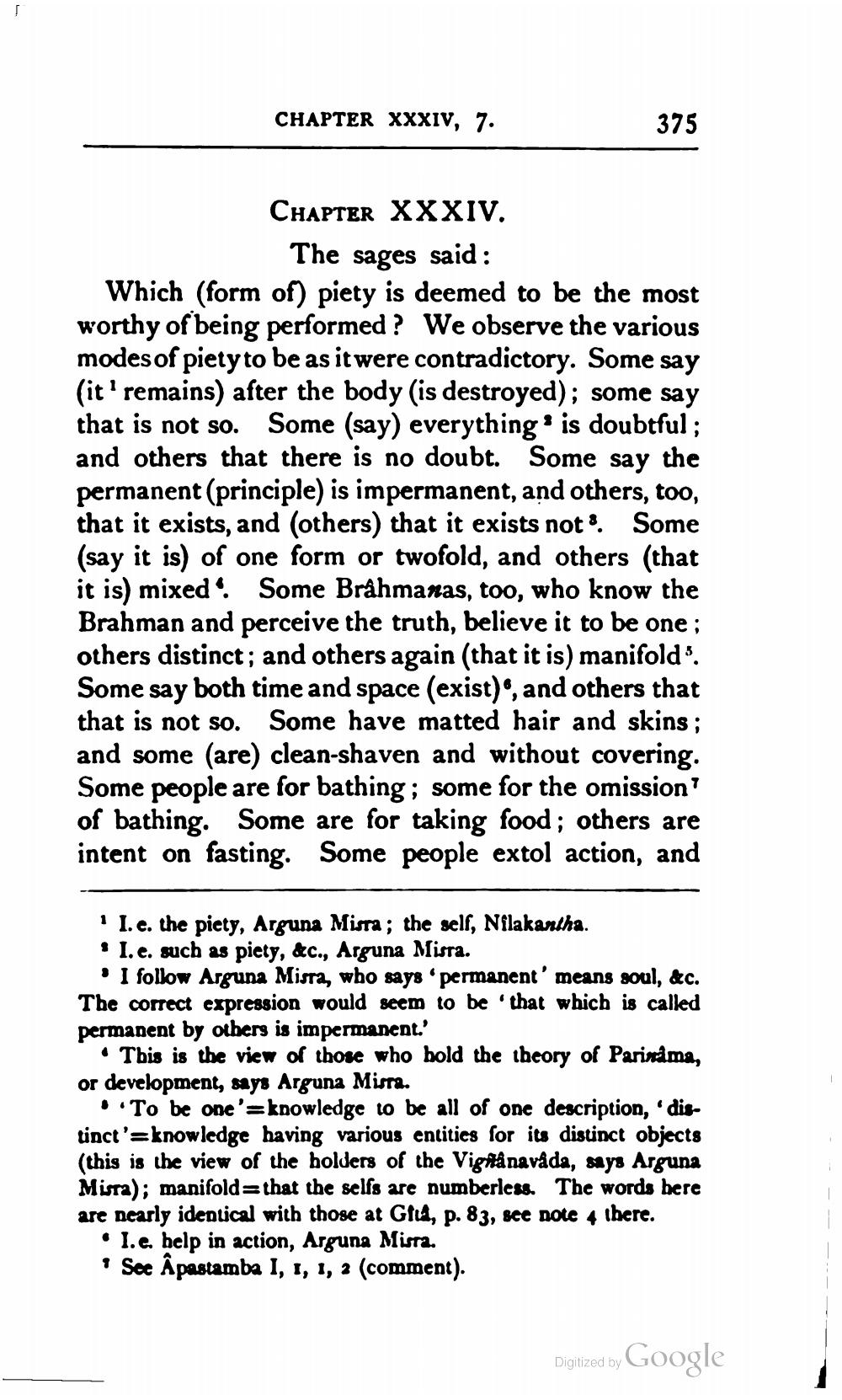________________
CHAPTER XXXIV, 7.
375
CHAPTER XXXIV.
The sages said: Which (form of) piety is deemed to be the most worthy of being performed? We observe the various modes of piety to be as it were contradictory. Some say (it' remains) after the body is destroyed); some say that is not so. Some (say) everything is doubtful; and others that there is no doubt. Some say the permanent (principle) is impermanent, and others, too, that it exists, and (others) that it exists not 8. Some (say it is) of one form or twofold, and others that it is) mixed. Some Brahmanas, too, who know the Brahman and perceive the truth, believe it to be one ; others distinct; and others again (that it is) manifold'. Some say both time and space (exist), and others that that is not so. Some have matted hair and skins ; and some (are) clean-shaven and without covering. Some people are for bathing; some for the omission' of bathing. Some are for taking food; others are intent on fasting. Some people extol action, and
" I.e. the picty, Arguna Misra; the self, Nilakantha. • I.e. such as piety, &c., Arguna Misra.
"I follow Arguna Misra, who says permanent' means soul, &c. The correct expression would seem to be that which is called permanent by others is impermanent.'
• This is the view of those who hold the theory of Parinama, or development, says Arguna Misra.
• .To be one'=knowledge to be all of one description, distinct'=knowledge having various entities for its distinct objects (this is the view of the holders of the Vigfå navada, says Arguna Misra); manifold=that the sells are numberless. The words bere are nearly identical with those at Glu, p. 83, see note 4 there.
• I.e. help in action, Arguna Misra. * See Âpastamba I, 1, 1, 2 (comment).
Digitized by Google




